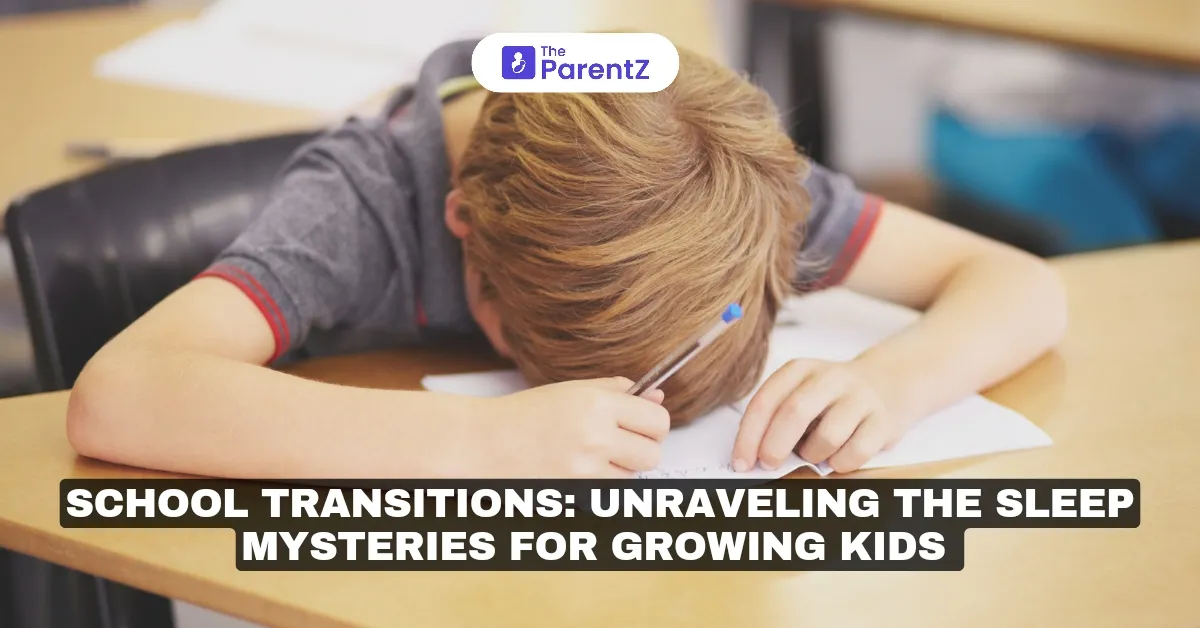Starting a new school year, switching schools, or moving to a different educational stage isn't just an academic journey – it's a full-blown emotional roller coaster that can dramatically reshape your child's sleep landscape. As parents, we often underestimate how profoundly these transitions can ripple through our children's nighttime routines.
Understanding the Impact of School Transitions on Sleep
School transitions are more than just schedule changes. They're emotional earthquakes that can shake up everything from bedtime rituals to dream patterns. When children transition to a new school or grade level, they often face various challenges. Your typically sound sleeper might suddenly become a nighttime wanderer, battling invisible anxieties that manifest through sleep disruptions.
- Increased Anxiety: New environments, teachers, and classmates can create feelings of anxiety and uncertainty.
- Changes in Routine: Different start times and schedules can disrupt established bedtime routines.
- Academic Pressure: As children progress through school, they may face increased academic demands that can lead to stress and late-night studying.
Research indicates that inadequate sleep during these transitions can negatively impact children's cognitive function, mood regulation, and overall well-being. For instance, studies show insufficient sleep is linked to decreased attention spans, slower processing speeds, irritability, and poorer academic performance.
Developmental Sleep Shifts
Kindergarten: The First Big Leap
When kids first enter formal schooling, their entire world transforms. Suddenly, they're:
- Experiencing structured environments
- Managing social interactions
- Learning independence
- Processing massive amounts of new information
These changes create significant mental and emotional fatigue that doesn't simply disappear when they hit the pillow.
Elementary to Middle School: Complexity Increases
As children grow, sleep challenges become more nuanced:
- Increased academic pressures
- Emerging social dynamics
- Hormonal changes beginning
- Growing independence
The brain becomes a 24/7 processing center, making peaceful sleep feel like an impossible dream.
Strategies for Supporting Healthy Sleep During Transitions
Establish a Consistent Sleep Schedule
Help your child maintain a regular sleep schedule. Set uniform bedtimes and wake-up times, even on weekends. This consistency reinforces their internal body clock and promotes better sleep quality.
- Challenges: With new school start times or extracurricular activities, it may be tempting to let bedtimes slide.
- Solution: Plan ahead by gradually adjusting your child’s bedtime a week or two before the school year begins. This gradual shift helps them acclimate to the new schedule without feeling overtired.
Create a Relaxing Bedtime Routine
Develop a calming pre-sleep routine that signals to your child that it’s time to wind down. Activities might include reading together, taking a warm bath, or practicing relaxation exercises.
- Challenges: Your child may resist bedtime due to excitement or anxiety about the upcoming school day.
- Solution: Make the routine engaging by allowing your child to choose stories or songs. Encourage them to express their thoughts about school during this time to alleviate any worries.
Address Sleep Anxiety
If your child experiences anxiety about school transitions, address these feelings openly. Encourage them to talk about their worries and validate their emotions.
- Challenges: Children may find it difficult to articulate their feelings or might feel embarrassed about their fears.
- Solution: Use storytelling or role-playing as tools to help them express their concerns. You might also share your own experiences of starting a new school to normalize their feelings.
Limit Screen Time Before Bed
Establish a rule that screens should be turned off at least one hour before bedtime. Their blue light interferes with melatonin production and disrupts sleep.
- Challenges: Your child might resist this change if they are used to watching TV or playing games before bed.
- Solution: Offer alternative activities such as board games, puzzles, or reading together as enjoyable substitutes for screen time.
Foster Independence in Sleep
Encourage your child to develop self-soothing techniques that help them feel secure when falling asleep on their own.
- Challenges: If your child is used to having you stay with them until they fall asleep, they may struggle with this transition.
- Solution: Gradually reduce your presence at bedtime by sitting further away each night until they feel comfortable settling down independently.
Monitor Sleep Environment
Ensure your child's bedroom is conducive to sleep—dark, quiet, and cool—by using blackout curtains, white noise machines, or fans if necessary.
- Challenges: Changes in routine might lead to disruptions in their sleep environment (e.g., siblings making noise).
- Solution: Discuss the importance of a good sleep environment with all family members and establish quiet hours during bedtime routines.
Communicate with Teachers
Keep an open line of communication with your child's teachers about any concerns regarding their behavior or performance related to sleep issues.
- Challenges: Teachers may not be aware of changes at home affecting your child's well-being unless informed.
- Solution: Schedule a brief meeting or send an email at the beginning of the school year to discuss any potential challenges your child might face during this transition period.
Conclusion
School transitions can significantly impact children's sleep patterns due to increased anxiety, changes in routine, and academic pressures. By implementing these strategies, you can help support your children through these changes effectively.
Remember that patience is key; it may take time for children to adjust fully. By providing a supportive environment and understanding their needs during this transitional phase, you can help ensure that they continue to thrive both academically and emotionally while getting the restorative sleep they need for success in school.









Be the first one to comment on this story.